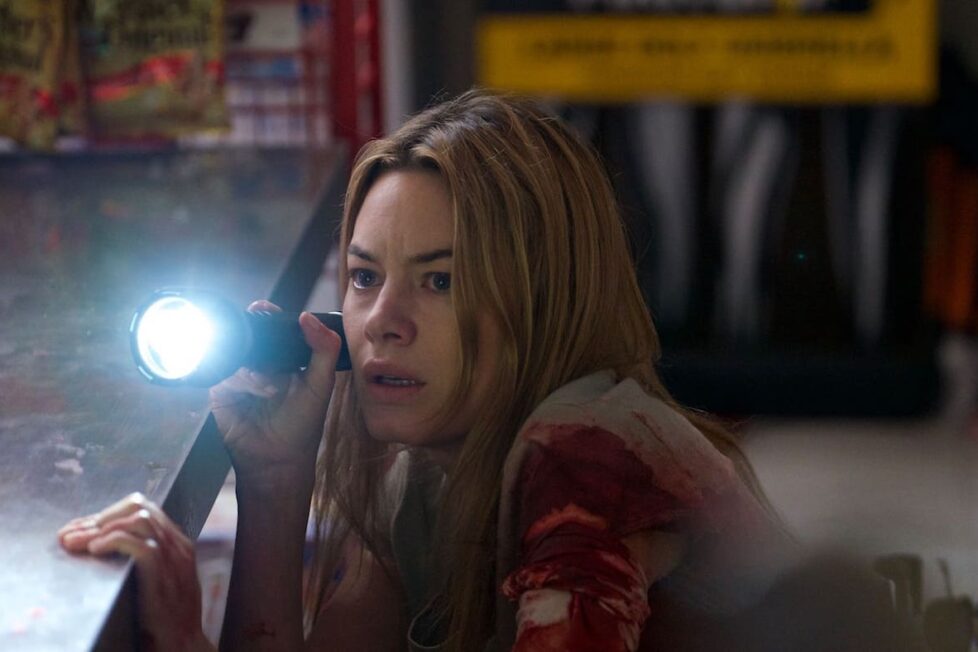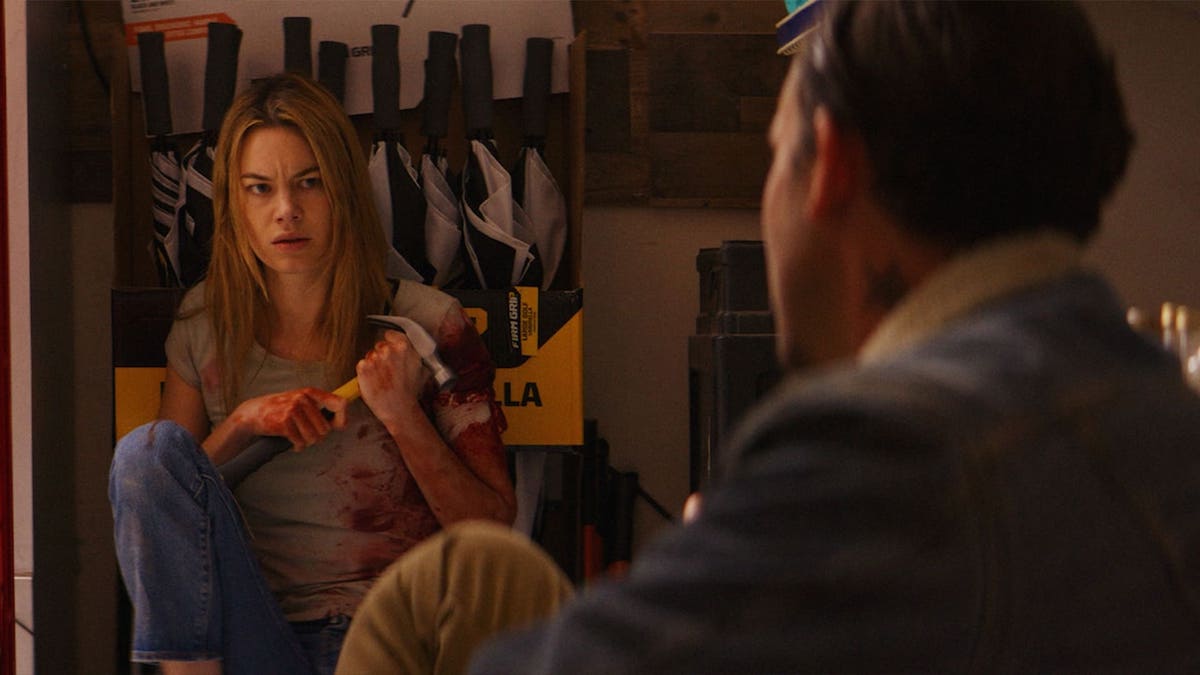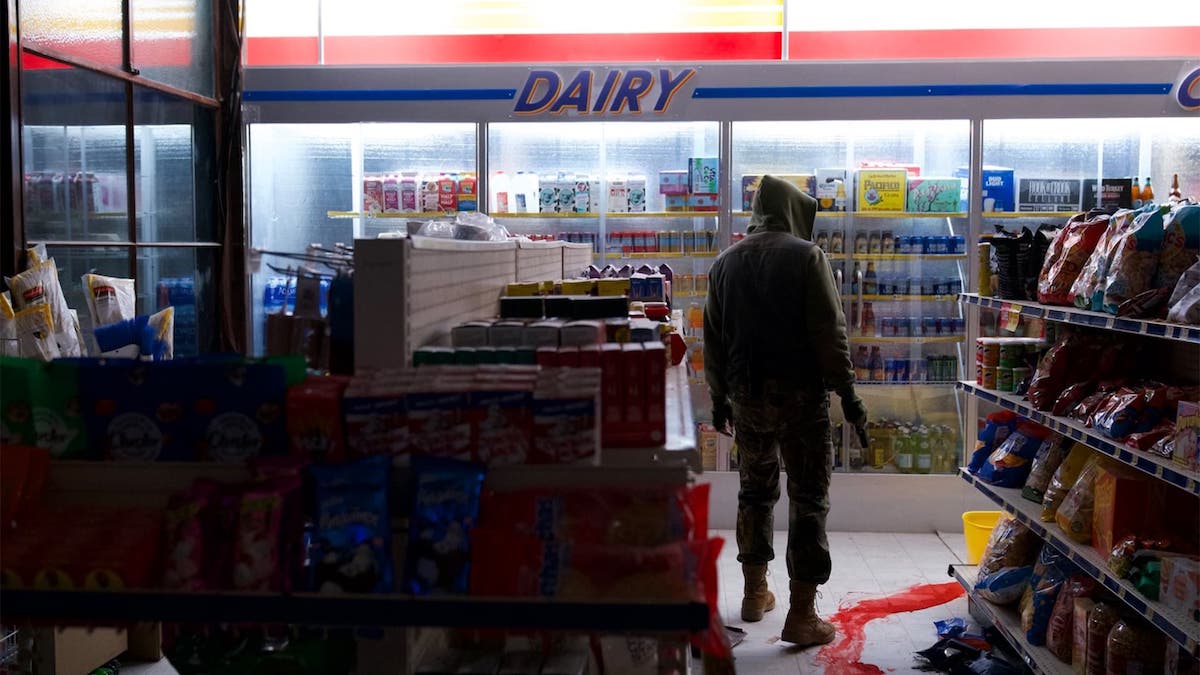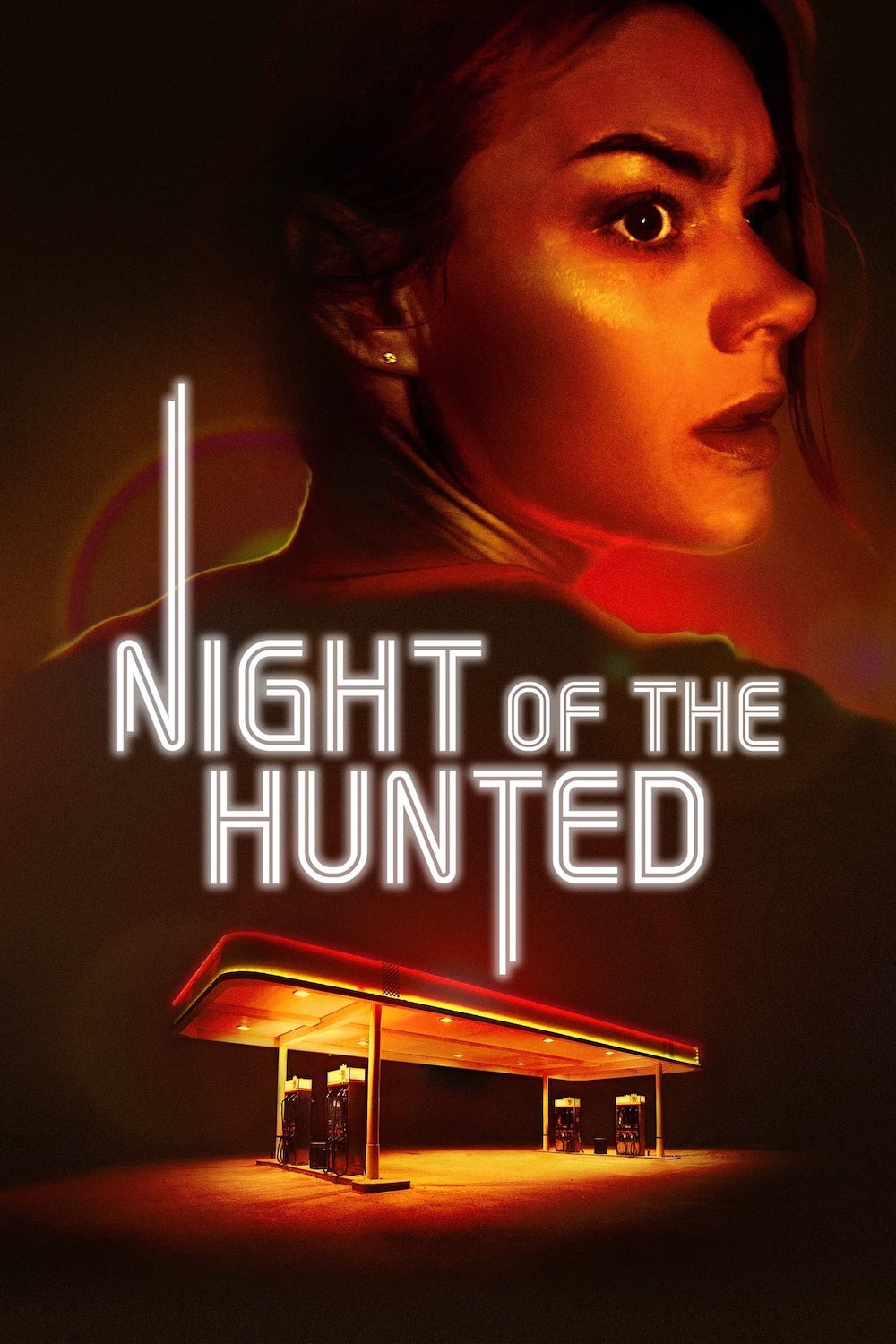NIGHT OF THE HUNTED (2023)
A woman is trapped in a deserted gas station by a mysterious sniper...

A woman is trapped in a deserted gas station by a mysterious sniper...


Franck Khalfoun’s Night of the Hunted makes no secret of wanting to be more than a slick thriller. Concentrating almost entirely on the battle of wits between two opposing forces—a MAGA-ish American man and the young woman he maybe wants to shoot dead, or perhaps only wants to teach a lesson—it ventures into class-war territory that movies like The Hunt (2020) and several instalments of The Purge franchise have already explored.
Indeed, Khalfoun’s film is in some ways more intelligent than many others dealing with such topics. Night of the Hunted is careful to not fully take sides, allowing that the sniper might have valid arguments even if our sympathies naturally lie with his target, and making the interesting point that the right-wing boogeyman is partially a creation of liberal perceptions.
It’s particularly striking in this context that Night of the Hunted, for all its American thematic content and American feel, is essentially a French film based on a Spanish one—David R. Losada’s La Noche del Ratón / Night of the Mouse (2015). It has no connection that I can discern with either of the two previous films of the same name, La Nuit des Traqués (1959) and Jean Rollin’s La Nuit des Traquées (1980), or with the similarly-titled Charles Laughton classic The Night of the Hunter (1955).
Still, writer-director Khalfoun has a solid English-language genre track record with films such as Amityville: The Awakening (2017) and Prey (2019) to his name, and if you weren’t aware of the French connection you’d probably never guess it; perhaps we have the historic French admiration for the Hollywood B-picture crime flick to thank for this, or perhaps it’s just an example of the modern internationalisation of film-making.
Night of the Hunted is equally a piece of pure entertainment that strongly resembles Jaume Collet-Serra’s The Shallows (2016) in stripping its protagonist’s plight back to the basics. There, it was a rock in the sea with a circling shark; here, a gas station convenience store in the middle of nowhere (actually the Middleton Movie Ranch near Los Angeles) with a well-situated shootist. Indeed, much of the interest of Night of the Hunted comes from seeing what Alice (Camille Rowe) can do with her limited resources, as well as from the puzzling question of who the shooter is and how he knows so much about her.

Alice is a young pharma marketing executive driving back home from a convention with her colleague and lover John (Jeremy Scippio)—and incidentally, isn’t that industry having a hard time of it on the screen lately, what with Netflix’s Fall of the House of Usher, Painkiller, Pain Hustlers and so on? You’d almost believe they were the bad guys… and Alice will soon find out that some people do believe that.
Forced to take a minor road because the freeway is closed, the pair stop for gas and Alice goes into the fuel station’s store while John fills up the car. (The gas, though, is leaking straight out again—a detail that, like many, Khalfoun’s direction makes completely clear.)
Alongside the building, a billboard reads ‘GODISNOWHERE’, and it’s not clear whether this means God is everywhere or doesn’t exist at all. Inside the deserted store, Khalfoun shows us blood spatters; trying to leave, Alice is shot in the shoulder; and much of the rest you can fill in, though it would be wrong to call Night of the Hunted predictable. At least one “obvious” development is in fact a red herring, there is an extremely clever final twist concerning the shootist’s identity, and then shortly afterwards the movie comes to an unexpected, slightly ambiguous, powerfully presented ending.
It’s Khalfoun’s direction more than anything else that makes Night of the Hunted work, and with a narrative based around a simple situation in an enclosed space, he mostly concentrates on making it real and understandable rather than distracting with elaboration.
The spatial layout of the store is clear (though sometimes the outside is less so), and short distances and single objects (from a walkie-talkie to a pack of snack food) are given real importance. Timing is well-judged on both the second-to-second and minute-to-minute level; silence is exploited well, although there’s also an excellent score from Mathieu Carratier (distant rumbles, keening solo lines, at one point a single repetitive drumbeat, at another a funereal piano march). It’s rarely the film gives in to the temptation of flamboyance (though one such touch, where bullets hit a car in sync with the rhythm of its alarm, can’t fail to raise a smile).

All of this is well shot by cinematographer Steeven Petitteville, too, again with no unnecessary distractions but with frequent changes of angle and point of view to add interest. And despite the night-time setting the lighting isn’t excessively dark either, which also sets Night of the Hunted above many other low-budget thrillers.
Among the cast, Rowe has to carry most of the film because her part is far bigger than anyone else’s and she is frequently on-screen alone. Perhaps her character becomes accustomed to her situation too quickly (which is normal for movies of this kind, as 90-minutes of a nervous collapse wouldn’t get the storyline far), but her character’s mix of fear, anger, frustration and confusion is plausible.
Stasa Stanic is terrific in the vocal role of the sniper, remaining reasonable and letting hints of strong feeling just show through, even when the screenplay is overdoing the anti-woke, anti-vax, MAGA aspects of the character a tad. Monaia Abdelrahim also stands out with her expressive face in the small but important part of a young girl who turns up at the gas station.
Certainly, a few holes can be picked: it wasn’t a good idea to occasionally show things that Alice can’t see; some of the surprises aren’t surprises; Alice seems to forget about phones now and again; there’s occasional glib dialogue (“I’m not having an affair because I’m in love, I’m having an affair because I’m in pain”); and some may feel that any feminist implications of the film are a tad undermined by the way maternal instinct eventually shapes the finale.
But these are no more than minor misgivings about a well-made movie that delivers all the genre satisfaction it aspires to, while at least opening the door to a more thoughtful dimension too.
USA • FRANCE | 2023 | 95 MINUTES | 2.35:1 | COLOUR | ENGLISH


director: Franck Khalfoun.
writers: Rubén Ávila Calvo, Glen Freyer, Franck Khalfoun & David R.L.
starring: Camille Rowe, Stasa Stanic, Jeremy Scippio, J. John Bieler & Monaia Abdelrahim.
